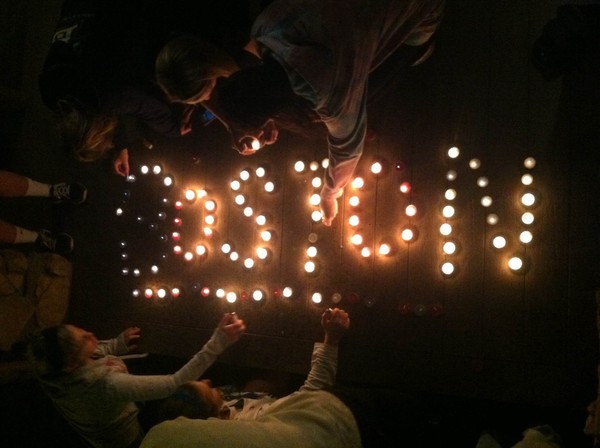Lauren is a psychology major at Boston University. She was a runner in this year’s Boston Marathon, only half a mile away from the finish line when the bombings took place. Her fellow Boston University student, Lu Lingzi, was killed. Over the past week, Lauren has been bombarded by media reports and social media musings from friends and acquaintances. She has received university alerts of “suspicious packages” and literally “dozens of emails about scholarship memorials in the name of the deceased, candlelight vigils, live streamings of the memorial, etc.”

In general, Lauren was feeling uncomfortable for not being devastated enough by the bombings and by the death of Lu Lingzi. She did not know Lu Lingzi, and feels like whatever fear she might be feeling is very small compared to, say, the fear that her friends deployed overseas face on a daily basis.
Lauren contacted the Order to ask the following question:
“What do you think propels people to go to [memorials] for a person they never knew the name or face of until it was plastered all over CNN? Does it give them a sense of control in the face of something utterly out of their control? Does it have to do with their own mortality? Survivor’s guilt? Or am I reading too much into it and they are just trying to honor the memory of the one student who died?”
Survivor’s guilt? Sense of control? Addressing their own mortality? In a word: YES.
You’re not reading too much into this at all. In fact, it can be really healthy to ask these questions about potential motivations. It helps us understand more about death, society, human nature, etc. Now, if someone posts an inspirational picture about Boston on Facebook, not a good idea to comment “SURVIVOR’S GUILT, BRO.” But that doesn’t mean the conversation isn’t an excellent one to have. Ernest Becker (who wrote the amazing Denial of Death, which I recommend frequently) said that humans are basically narcissistic creatures. We’re built biologically to be narcissists. It’s a pretty brutal life, after all, trying to find our place in a universe that can kill us off at any second. We often see situations (and certainly death) in terms of how they relate to us. This isn’t always fun to hear, but it’s the reality.
So mass grieving for any devastating event is often not a totally pure exercise of honoring the memory of those who died. The people grieving are absolutely self-identifying, facing their own mortality, and trying to adjust to their own feelings. This is not to say that’s a bad thing. I’m not demeaning their process in any way, as they are searching for answers like you are. It can be a healthy thing, a good thing, an attempt to understand how the role of death and more importantly the fear of death plays in our lives.
When I handle the dead body of a young person, say a drug addict who looks just like a dear friend of mine, I will think about my friend. I will grieve over the fact that he will someday die, and the sorrow that I will feel. That doesn’t mean I don’t care about the person who actually is lying dead before me, it just means that we frame things as they relate to us.
BUT — you, Lauren, should not feel bad about your own process, or that you’re not doing enough grieving or identifying with the people who died. Being so close to the actual event, by its very nature, gives you liberty to engage at your own pace in your own way. Don’t let anyone make you feel like you should be more upset/scared right now. Engaging your feelings head on and asking the questions you are asking shows you’re ahead of the game.
